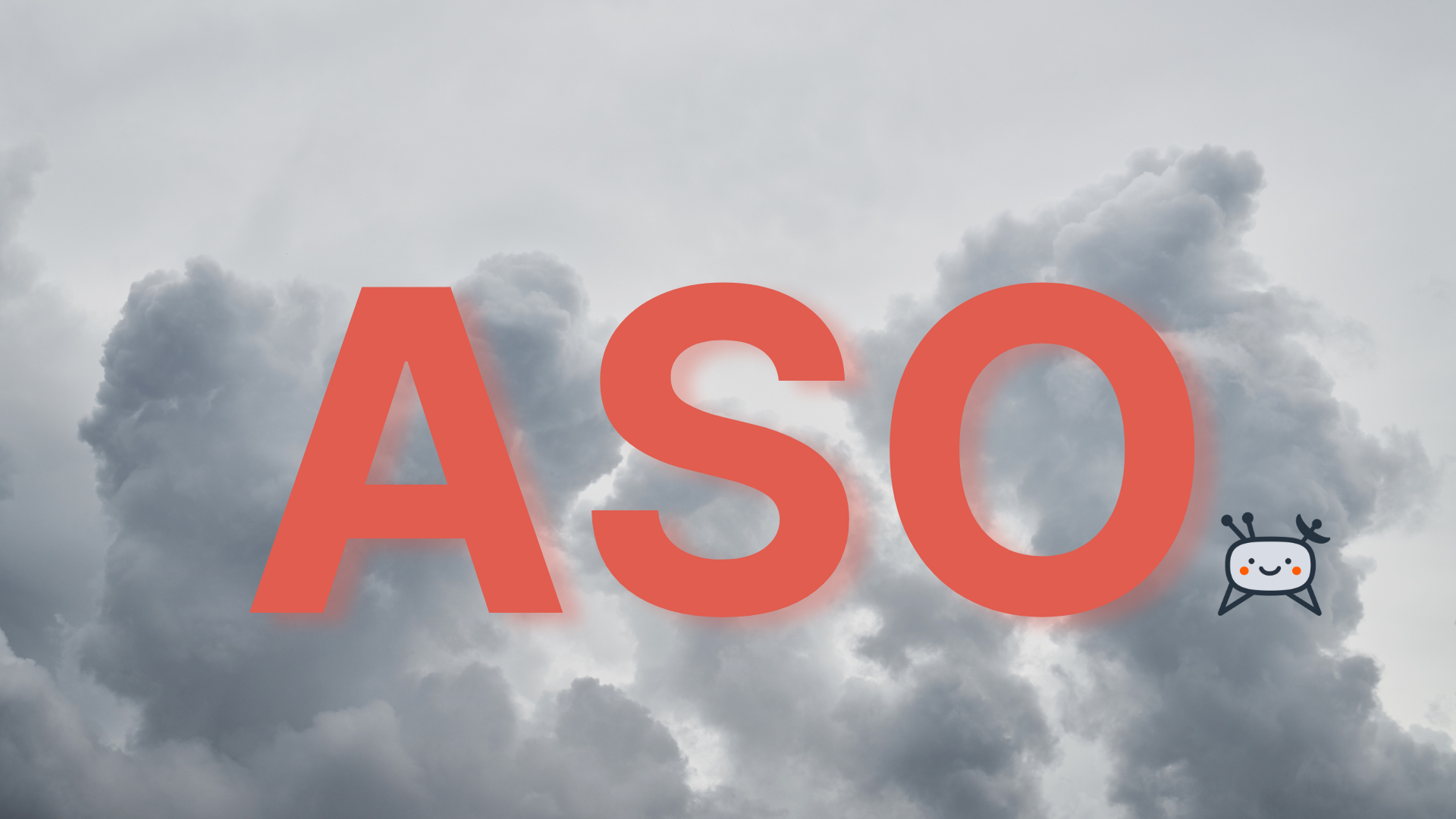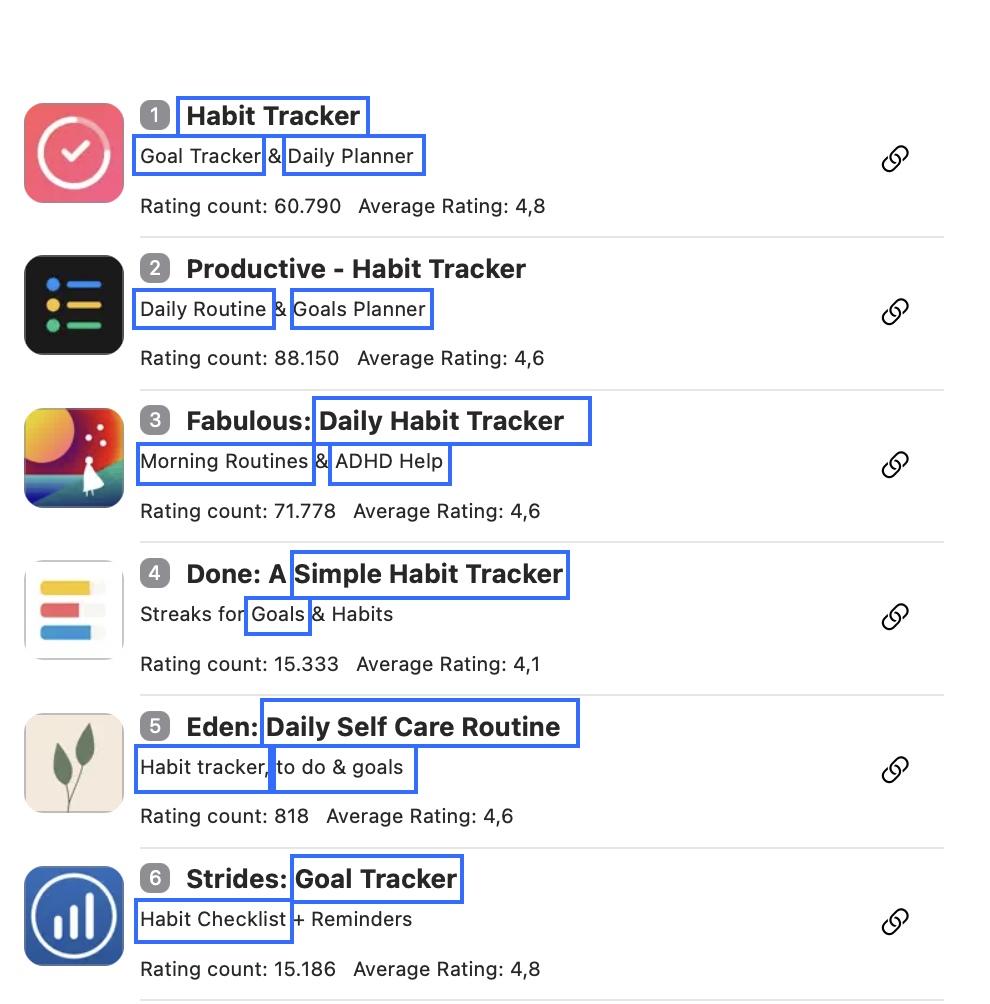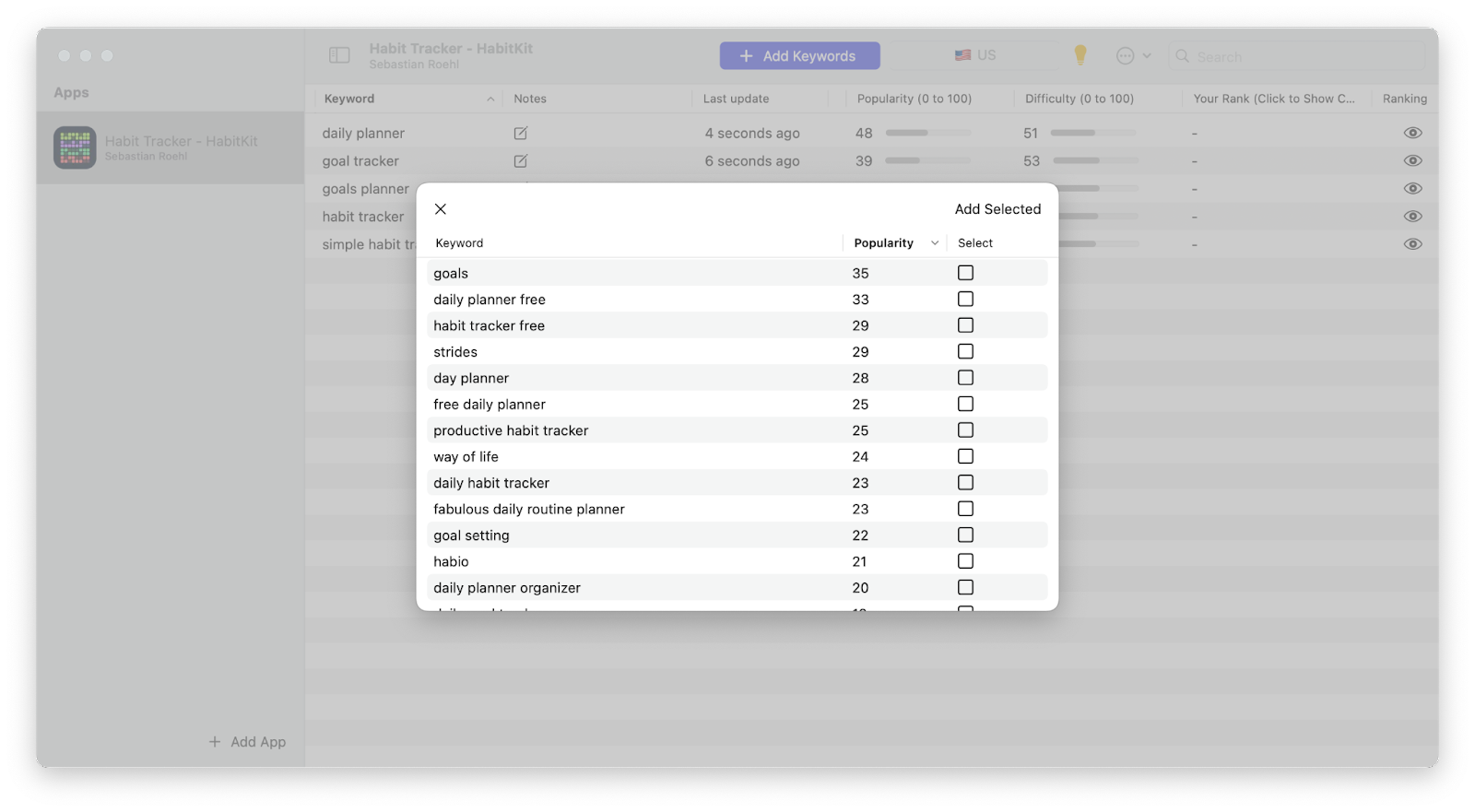Guest Post: What is App Store Optimization
This is new: Here you can read the first guest article ever written for the TelemetryDeck blog. 🥳 Many thanks to Matteo for his tips on App Store optimization!

What is App Store Optimization?
App Store Optimization (ASO) is currently one of the simplest and most cost-effective methods to obtain new users for your app completely free of charge.
ASO refers to all the useful practices aimed at improving the positioning of our app on Apple and Google stores in order to increase organic downloads.
Utilizing ASO is not difficult but requires time, and it is essential to carefully choose the keywords for which we will index our app.
In this article, I will explain a simple and quick method for conducting keyword research without having to be a marketing expert.
Differences between Play Store and App Store
Before diving into the details of the method, it's important to highlight some differences between Apple's App Store and Google's Play Store.
Regarding the Play Store, there is no specific field for keywords. Google is able to index the page of our app and automatically understand which keywords are most relevant for the application, just like a web page. We can include them within the title, long description, and short description.
As for the App Store, Apple provides a field in App Store Connect where we can enter our keywords separated by commas. Additionally, two other useful fields to include keywords are the title and subtitle.
Keyword research checklist
Now that we know where to insert the keywords, we need to conduct our keyword research to find the best keywords for our app. To do this, I have created an 7-point checklist that will guide you step-by-step in choosing the keywords. To simplify this guide, we will search for keywords for iOS using an App Store Optimization tool that I personally developed, called Astro.
1. Brainstorming
The first step is to jot down a list of keywords. Imagine what keyword a user might use to search for your app. It is important to select the most relevant keywords for our project. You don't need to have many keywords. 5/10 will suffice.
2. Check competitors' keywords
After creating a list of potential keywords, the next step is to search for each of these keywords in the US store and analyze the top 10 applications.
By doing this, you can see which keywords are commonly used in the titles and subtitles of successful apps in your category. In this example, we started with the keyword Habit Tracker.

3. Get keyword suggestions
Now we have a long list of keywords that we can use. The next step is to enter these keywords into an App Store Optimization tool to receive further suggestions.
The paid version of Astro extracts suggestions directly from Apple Search Ads to provide the best keywords to use.
To get the suggestions, simply add the keywords found in the previous step to the list of keywords and click on the lightbulb icon.

4. Filter by relevance
After receiving the keyword suggestions from Astro, the next step is to filter out the most relevant keywords for your app.
To do this, you need to ask yourself if your users will actually use that specific keyword to search for your app. For example, if you have developed a paid calendar app, the keyword “free calendar” may seem like a good option with a popularity score of 25, but it's not relevant to your app since it's not free.
Only you can determine how relevant a keyword is to your app, so take your time and assign a score ranging from 1 (very relevant) to 3 (not relevant at all) to all the keywords you have found. You can also use the notes' field in Astro to keep track of your scores.
5. Filter by difficulty and popularity
After filtering out the most relevant keywords for your app, focus on selecting those with high popularity and low difficulty.
Popularity refers to how often a keyword is searched for in the store, while difficulty indicates how difficult it is to rank in the top 10 for that keyword.
While it may not always be possible to find keywords with both high popularity and low difficulty, aim to find the best possible compromise.
6. Prioritize
After selecting the most relevant keywords with high popularity and low difficulty, it's time to decide which ones to include in the app's metadata, such as the name, subtitle, and keyword field.
With Astro, you can add a note to assign the keywords to a specific field. It's important to keep in mind that keywords have different weights depending on where they are placed.
For example, a keyword included in the title will be given more weight by the algorithm than a keyword included in the keyword field. Therefore, prioritize the most important keywords and place them in the most impactful fields.
7. Repeat for as many stores as possible
While many developers focus on optimizing their keywords for the US store, they often neglect the importance of optimizing their keywords for other stores.
However, optimizing your keywords for other stores can be an opportunity to gain more downloads easily, especially in markets where there is less competition. To do this, all you have to do is translate all your keywords using a service like DeepL and go through the checklist again, starting from point number 3.
Conclusions
This is the checklist that I personally use to conduct keyword research, starting from scratch. If you want to learn more about this topic, I recommend downloading my free book “The Perfect Keyword” where I explain in detail how to correctly insert keywords and provide many other useful tips.

